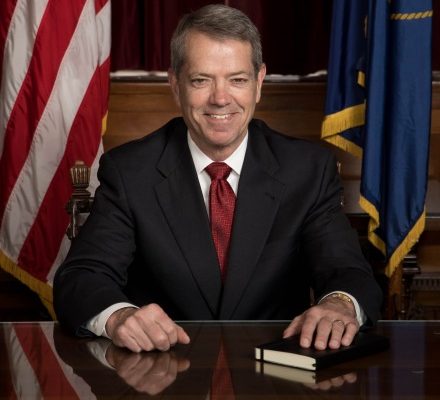Nebraska has the lowest drug overdose death rate in the country. Yet, some state senators want to bring the failed policies of drug-infested cities like San Francisco here to the Good Life. This isn’t just a bad idea; it’s a dangerous one.
Legislative Bill (LB) 307 would authorize the state-sanctioned distribution of syringes to drug users. In other words, the bill would enable drug use by equipping addicts with free needles. If that sounds crazy to you, let me assure you that you’re not alone. I vetoed LB 307 as soon as it reached my desk. I’m calling on state senators to sustain my veto to prevent our government from aiding and abetting the use of dangerous, illicit, and dehumanizing drugs.
Supporters of LB 307 want to replace dirty needles with clean ones to reduce the transmission of bloodborne diseases like HIV. This is a mistaken goal. It’s not 1990 anymore. Opioid overdose, not HIV transmission, is the primary threat we face. Annually, HIV is responsible for fewer than 5,000 deaths in the U.S., while opioid overdoses kill over 80,000 Americans. The opioid problem is growing worse by the day as drugs stream across the broken southern border and onto our streets. The Omaha Division of the Drug Enforcement Administration (DEA-Omaha) seized 83% more fentanyl pills in 2023 than in 2022. Overall, DEA-Omaha seized 2.9 million lethal doses of fentanyl last year. That’s enough to kill every Nebraskan.
Needle-exchange programs feed into the opioid crisis. Recent studies on the effectiveness of these programs found that they result in greater opioid-related deaths, while only contributing to a negligible reduction in HIV infections. For example, research published in the Journal of Public Economics in June 2022 found that needle-exchange programs decrease HIV diagnosis rates by up to 1.1%. Yet this reduction is offset by a 2.0% to 3.5% increase in opioid-related morality rates.
These stats are unsurprising. Needle-exchange programs hand out free drug paraphernalia. These programs also regularly convene drug users — which has the unintended consequence of strengthening drug supply and distribution networks. Additionally, needle-exchange programs destigmatize drug use and signal leniency toward drug offenders.
Evidence has also shown that the costs and number of needles have ballooned in cities with established needle-exchange programs. In San Francisco, health department records show the city handed out 3.3 million needs in fiscal year 2013-2014 at a cost of $400,000. Just two years later, the number of needles distributed jumped to 4.5 million at a cost of more than $520,000.
Additionally, San Francisco has struggled with inadequate disposal of dirty needles, leaving vulnerable populations like children at risk of contracting deadly diseases. Out of 400,000 needles distributed monthly in San Francisco, 154,000 are not returned to disposal sites. This has forced the city to spend $750,000 a year to hire crews to pick up the dirty syringes left on sidewalks and at area parks.
A quick scan of headlines from the past year shows the folly of following the drug policies of progressive cities:
“Deadliest Year for Drug Overdoses in San Francisco”
“Seattle’s Addiction: The Fentanyl Crisis Destroying the City”
“NYC Drug Overdose Deaths Skyrocketing, Experts Explain”
As Governor, I’m committed to protecting our kids from the scourge of drugs and keeping our neighborhoods safe and clean. I invite commonsense Nebraskans to join me in opposing the government-sanctioned distribution of drug paraphernalia. You can take action by encouraging your state senator to sustain my veto of LB 307. Contact info for your legislative representative is available at nebraskalegislature.gov.

